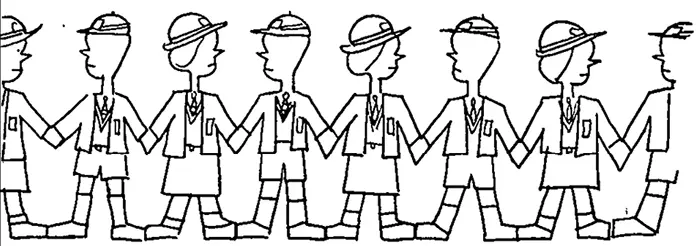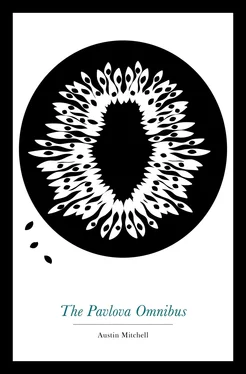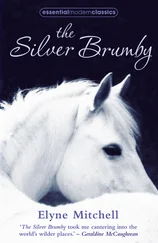Austin Mitchell - The Pavlova Omnibus
Здесь есть возможность читать онлайн «Austin Mitchell - The Pavlova Omnibus» — ознакомительный отрывок электронной книги совершенно бесплатно, а после прочтения отрывка купить полную версию. В некоторых случаях можно слушать аудио, скачать через торрент в формате fb2 и присутствует краткое содержание. Жанр: unrecognised, на английском языке. Описание произведения, (предисловие) а так же отзывы посетителей доступны на портале библиотеки ЛибКат.
- Название:The Pavlova Omnibus
- Автор:
- Жанр:
- Год:неизвестен
- ISBN:нет данных
- Рейтинг книги:5 / 5. Голосов: 1
-
Избранное:Добавить в избранное
- Отзывы:
-
Ваша оценка:
- 100
- 1
- 2
- 3
- 4
- 5
The Pavlova Omnibus: краткое содержание, описание и аннотация
Предлагаем к чтению аннотацию, описание, краткое содержание или предисловие (зависит от того, что написал сам автор книги «The Pavlova Omnibus»). Если вы не нашли необходимую информацию о книге — напишите в комментариях, мы постараемся отыскать её.
The Pavlova Omnibus — читать онлайн ознакомительный отрывок
Ниже представлен текст книги, разбитый по страницам. Система сохранения места последней прочитанной страницы, позволяет с удобством читать онлайн бесплатно книгу «The Pavlova Omnibus», без необходимости каждый раз заново искать на чём Вы остановились. Поставьте закладку, и сможете в любой момент перейти на страницу, на которой закончили чтение.
Интервал:
Закладка:
So think of New Zealand as a small town with the trimmings of a nation state. Seriously though, you must admit that this small town tone makes for a friendly personal atmosphere as distinct from the impersonal anonymity you’ve left behind. And if you don’t like it, keep quiet. You might be run out of town—on Air New Zealand.
FOURTH LETTER Fourth Letter: Education: The Making of the Resident Fifth Letter: The Kiwi Science of Politics Sixth Letter: Sex or the New Zealand Woman’s Weekly Seventh Letter: Seven Days Shalt Thou Labour: The Games Kiwis Play Eighth Letter: The Kiwi Sniggers: A Brief Guide to New Zealand Humour Ninth Letter: The Medium is the Tedium Tenth Letter: The Kulture of the Kiwi Bird Eleventh Letter: Overseasia Twelfth Letter: Processed Pom
EDUCATION: The Making of the Resident Fourth Letter: Education: The Making of the Resident Fifth Letter: The Kiwi Science of Politics Sixth Letter: Sex or the New Zealand Woman’s Weekly Seventh Letter: Seven Days Shalt Thou Labour: The Games Kiwis Play Eighth Letter: The Kiwi Sniggers: A Brief Guide to New Zealand Humour Ninth Letter: The Medium is the Tedium Tenth Letter: The Kulture of the Kiwi Bird Eleventh Letter: Overseasia Twelfth Letter: Processed Pom
AN OXFORD college head once assured me that all New Zealanders look alike: tall, craggy featured, nothing to say. If he was right it must be because they are produced by standdardised processes, one of the most uniform production systems in the world outside die stamping. And thorough. New Zealanders spend as much time and trouble on raising young New Zealanders as they do on sheep. They can’t spend as much money, but the people aren’t intended for export.

The family is the basic unit of production, but you have to make allowances for it. Rearing New Zealanders is too important to be left entirely to families, who could, after all, include English immigrants, Labour voters and undetected libertarians. So all the way up the line the product is processed in government plants during the day and shuttled back to the home storage units at night and weekends.
In the beginning is the hospital. Babies have to be born there so that regular feeding can programme them to wake Mum at regular intervals and she can be made to feel guilty about such anti-New Zealand habits as sleeping after six a.m. or getting too much pleasure out of a child. Dad’s exclusion from the process of birth and his grudging admission to the hospital conditions him to the view that the whole business has nothing to do with him. His job is restricted to waving rattles before unseeing eyes and going ‘Goo-goo’. Neither his role nor his ability to communicate with his children ever improves much.
After hospital the Plunket Society, a paediatric Farm Advisory Service, steps in to reinforce the lessons. Its purpose is to check the spread of permissiveness and plastic pants among children under one by propagating the principles of child rearing common in advanced circles only fifty years ago. These rules were set out by Dr Truby King in his book Scouting For Mothers. Children should be a duty not a pleasure. Mum must not be allowed to bring up children in the way she wants. Parents should be seen and not heard.
Orwell’s 1984 had a television camera in every room. New Zealand uses an inspectorate of Plunket ladies observing home practices, administering gentle correction where necessary. They are kinder to the children than to mothers. Plunket reports will surely be weighed in the scales of heaven, so they must be charitable. One day my daughter screamed continuously, bit the nurse and deposited what should have gone into the nappy in her lap. The record card commented mildly, ‘An independent wee soul’.
A former Governor-General pointed out that ‘if it were not for the success of the Plunket Society there might be no All Blacks’. There would be no Progressive Youth Movement either. The society makes New Zealanders what they are. It begins the lifelong tension between what we want to do and what we are conditioned to feel we should do. Young Everidge wants to eat when he’s hungry; he’s conditioned to nibble at four-hour intervals. He wants to play with himself; his hand gets slapped to show him sex is a dirty pleasure, suitable only for the dark. As a former Obergruppenführer of the Plunket Society once said, ‘Give me the child for seven months, with whatever donations you can afford, and I will give you the All Black.’
In case conditioning fades, there is an after-sales service from 250 kindergartens and 300 play groups. These socialise the children to play together, but only incidentally. The main purpose is to give the mums something to do. These places are an outlet for that frenzied organisational drive which is the first symptom of postpuerperal depression, a chance to trade in old gossip for new and an opportunity to keep a wary eye on everyone else’s child-rearing procedures. Is Sandra Binns’s toilet training late? Her mum will be made to feel anxious. Does Johnny Jones go in for full frontal nudity? After all, the children won’t be really happy unless they’re exactly like everyone else.
This is also the view of the Department of Education, the intellectual branch of Sir James Wattie and company. Overseas they think of education as a process, a liberation, a joyous awakening. Such emancipation hardly fits in with the New Zealand skill of regulation. It would produce a storm of protest from parents puzzled that their children should reject a life style they themselves have known from time immemorial (i.e. 1935). So this country has changed the meaning of the word. Education means a department, seeing that all plants produce to the same standard, turning a process of emancipation into a means of integration. So no one wants any.
The basic function of any government department is to keep its field of operations quiet. Education clings to this rule all the more anxiously, since its one aberration revealed the dangers of an alternative course. In 1935 Labour appointed a Minister of Education who was interested in the subject, had ideas and could push them through Cabinet—all factors which would have disqualified him for the job in normal circumstances. Peter Fraser and Dr Beeby initiated a primary school revolution. The authoritarian ethos was weakened. The insistence on the three Rs of reading, riting and rigidity was replaced by an effort to capitalise on the child’s instinct to learn. Dr Dewey came to New Zealand to be embalmed in state.
The effort was too much. The revolution exhausted itself on the primary schools before it could reach the rigidly conservative postprimary schools. Now, a slightly archaic and staid liberalism of the primary system sits in schizophrenic contrast with a postprimary system, where instruction is handed down to be duly carved on tablets of stone.
The backlog of hostility from an older generation which had not enjoyed its own schooling and was determined that no one else should, made further innovations impossible. The collapse of morals, the untidiness of state house gardens and the growing incidence of public nose-picking were all authoritatively attributed to ‘play-way’. Dr Bee by was sent off to be New Zealand ambassador to the Folies Bergère. The Department confined itself to administration. Since it is now largely manned by ex-teachers, the present system is safe and self-perpetuating. Those who can, teach; those who can’t, administer. Those who can do neither become ministers.
As a final safeguard, education is administered by a complex balance of groups, so nicely deadlocked as to make change impossible. Boards are in friction with the Department, headmasters with boards, staffs with all three, school committees and PTAs with any two at random. At the top of this house of cards sits the Minister, whose main qualifications are usually his complete inability to get anything through Cabinet and his enthusiasm for those educational techniques common in the late nineteenth century. In this way everyone in education can be left to fight everyone else so that the rest of the population can spend their money on booze, baccy and betting and the Government can go out shopping for frigates.
Читать дальшеИнтервал:
Закладка:
Похожие книги на «The Pavlova Omnibus»
Представляем Вашему вниманию похожие книги на «The Pavlova Omnibus» списком для выбора. Мы отобрали схожую по названию и смыслу литературу в надежде предоставить читателям больше вариантов отыскать новые, интересные, ещё непрочитанные произведения.
Обсуждение, отзывы о книге «The Pavlova Omnibus» и просто собственные мнения читателей. Оставьте ваши комментарии, напишите, что Вы думаете о произведении, его смысле или главных героях. Укажите что конкретно понравилось, а что нет, и почему Вы так считаете.












